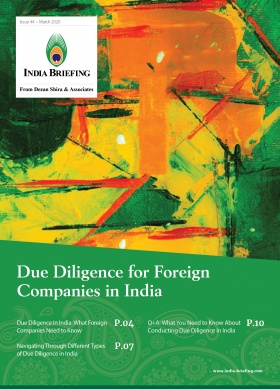Cryptocurrencies in India to be Subject to Anti-Money Laundering Compliance
Anti-money laundering (AML) provisions will be imposed by India on cryptocurrency platforms and transactions involving virtual digital assets to curb criminal activity, improve income disclosure and financial transparency, and prevent terrorist financing.
India has made a substantial effort to bolster regulation of the digital asset sector by incorporating cryptocurrency trading, safekeeping, and other financial services to the scope of the Prevention of Money Laundering Act (PMLA), 2002.
On March 7, 2023, the federal government published a gazette notice mandating intermediaries dealing with virtual digital assets (VDA) and crypto exchanges to undertake know your customer (KYC) checks on their customers and platform users. Additionally, these intermediaries and exchanges must notify the Financial Intelligence Unit India (FIU-IND) about any suspicious activity.
This move comes shortly after Nirmala Sitharaman, the finance minister of India, announced that India and the other G-20 members were closely discussing the need for standard operating procedures to regulate crypto assets. According to Sitharaman, Web3 and cryptocurrency assets were still in their early stages of development and required significant international cooperation to be fully controlled.
What type of crypto transactions will be subject to AML laws in India?
According to the government notification, organizations that trade in virtual digital assets are considered “reporting entities” under PMLA and must keep a record of all transactions, including cash transactions over INR 1 million (US$12,191) for at least five years. Additionally, they are required to keep track of every series of cash transactions that are closely related to one another and that occur within a month and whose combined value surpasses INR 1 million.
As per the directives, the following transactions will now be subject to PMLA, 2002:
- Exchange between VDAs and fiat currencies
- Exchange between one or more forms of VDAs
- Transfer of VDAs
- Safekeeping or administration of VDAs or instruments enabling control over VDAs
- Participation in and provision of financial services related to an issuer’s offer and sale of a VDA
The Indian government’s stance is in alignment with the global trend of regulating digital asset platforms to implement anti-money laundering guidelines akin to those adhered to by other regulated entities like banks or stockbrokers.
How has the industry responded to this development?
Following the release of the notification, the crypto industry has lauded the move. The notification to include VDA transactions under PMLA is a step in the right direction towards recognizing the sector, according to Ashish Singhal, co-founder of Coinswitch. In the same vein, WazirX founder Nischal Shetty stated in a tweet that it is a positive start towards regulating the cryptocurrency business in India. The requisite KYC, transaction monitoring, etc., must be performed by all cryptocurrency businesses as part of their process, he added.
As per data by Chainalysis, total cryptocurrency laundered globally in 2022 amounted to US$23.8 billion, up from US$14.2 billion in 2021 and US$8.5 billion in 2020. The data also suggested that more illicit funds were sent to decentralized finance (DeFi) protocols than ever before, a continuation of a trend that began in 2020. Data records a 1,964 percent increase in cryptocurrency laundered through DeFi protocols, which equates to about US$900 million in laundered money.
What are the global standards for AML legislation concerning crypto?
Global standards for AML laws are set by the Financial Action Task Force (FATF). Policymakers in FATF member states moved swiftly as a result of the FATF’s publication of cryptocurrency AML guidelines in 2014, which have been updated several times since. Most of the FATF’s cryptocurrency AML recommendations have already been legally enacted by the European Commission, the United States Financial Crimes Enforcement Network (FinCEN), and several other regulatory bodies.
According to the guidelines, the FATF classifies a variety of organizations as VASPs (Virtual Asset Service Providers), including cryptocurrency exchanges, stable coin issuers, and, under certain conditions, some DeFi protocols and NFT marketplaces. These VASP organizations are responsible for ensuring compliance with AML regulations. VASP’s Compliance Officers must necessitate KYC checks and frequently monitor for suspicious activity to thwart dubious transactions that could be connected to money laundering and terrorism financing.
Additionally, VASPs are required to report suspicious activity to the appropriate regulators and agencies, who are in charge of tracking down illegal conduct employing a wide range of tools, such as blockchain analysis, and evaluating the flow of money.
About Us
India Briefing is produced by Dezan Shira & Associates. The firm assists foreign investors throughout Asia from offices across the world, including in Delhi and Mumbai. Readers may write to india@dezshira.com for more support on doing business in in India.
We also maintain offices or have alliance partners assisting foreign investors in Indonesia, Singapore, Vietnam, Philippines, Malaysia, Thailand, Italy, Germany, and the United States, in addition to practices in Bangladesh and Russia.
- Previous Article India Tightens Release of FAME-2 Subsidies for EV Makers, May Not Extend Scheme
- Next Article South Indian State of Karnataka Liberalizes Labor Law After Lobbying by Apple, Foxconn









